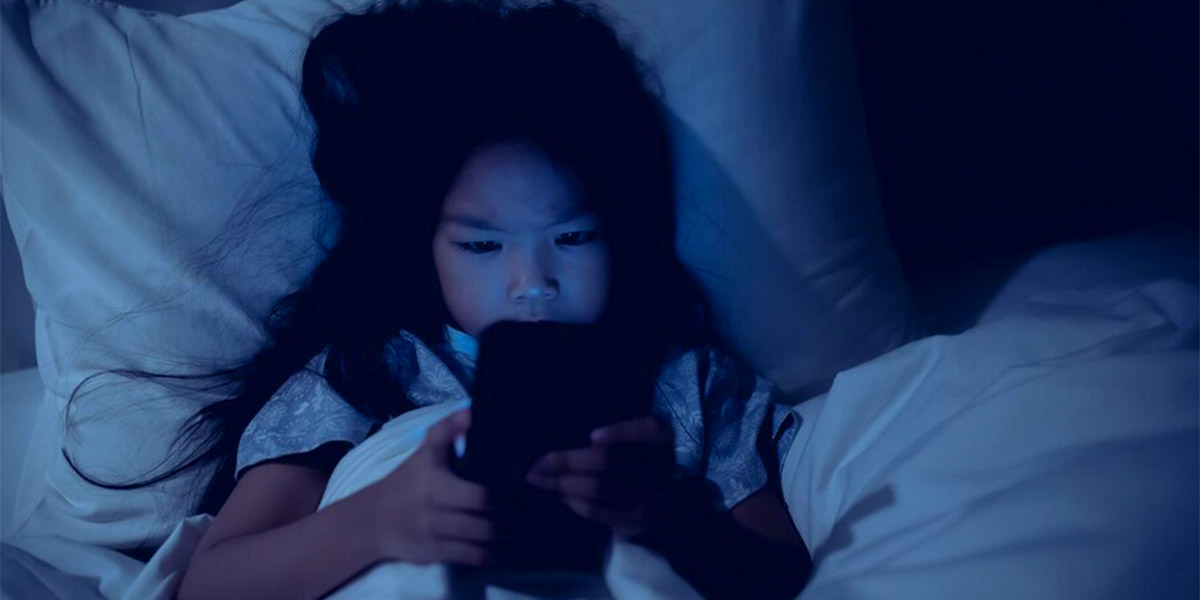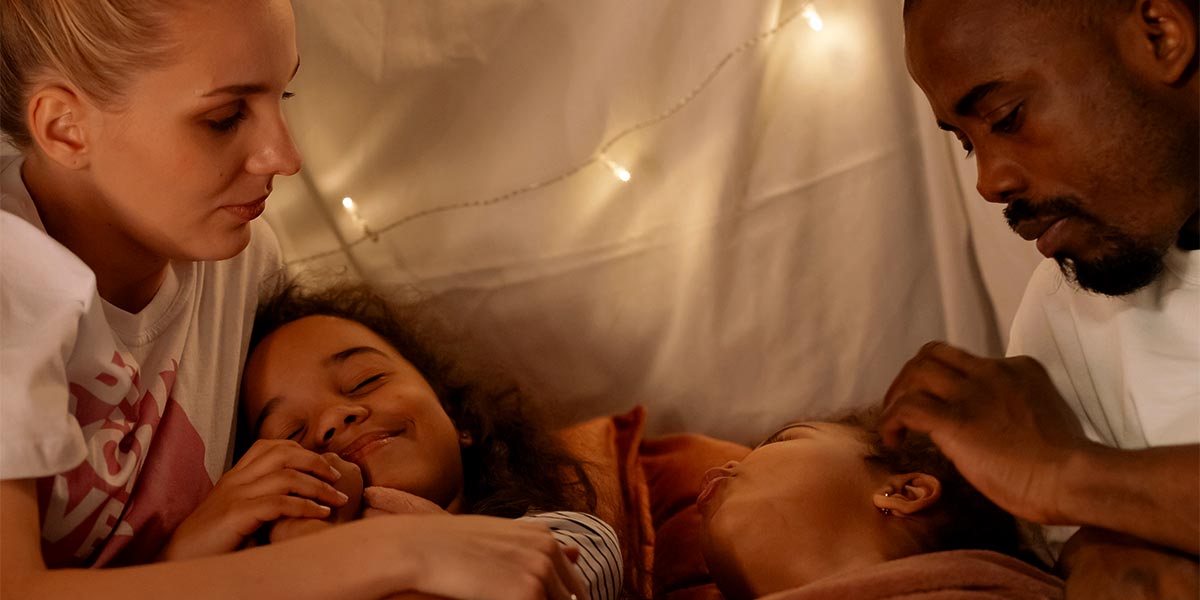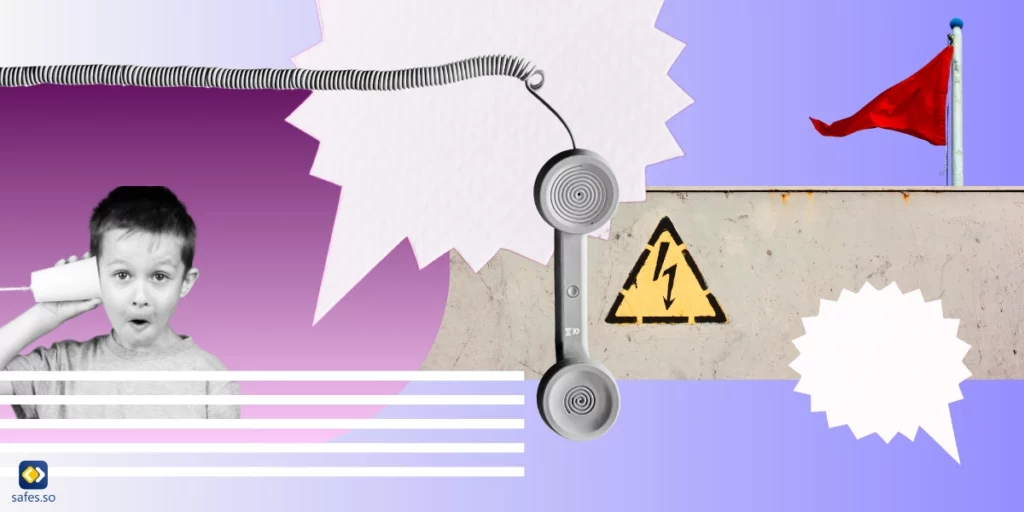Children’s sleep is being disturbed more frequently in today’s fast-paced world where technology is a vital part of our daily lives. It’s understandable why more and more kids are having trouble getting the sleep they need when screens, gadgets, and other technology keep kids up and active late into the night. A recent study found that the percentage of kids between the ages of 5 and 17 who have sleep disorders is approaching 50%, and the problem is only getting worse.
Download and Start Your Free Trial of the Safes Parental Control App
Children need to sleep for their health and wellbeing. It is essential for the growth of the body, mind, and emotions, and sleep deprivation can have negative effects. According to research, kids who don’t get enough sleep are more likely to have behavioral issues, struggle in class to focus and retain information, and are more likely to experience depression and anxiety.
The widespread use of technology is one of the main causes of modern children’s sleep problems. Children have trouble falling asleep and staying asleep because the blue light from screens inhibits the production of melatonin, a hormone that controls sleep. The constant availability of entertainment and stimulation provided by screens can also keep children up well past their bedtime.

What Are The Main Reasons Why Kids Have Sleep Disorders?
Here are a few typical offenders:
Technology: Children have trouble falling asleep and staying asleep because the blue light emitted by screens inhibits the production of melatonin, a hormone that regulates sleep. Furthermore, kids may stay up well past their bedtime due to the constant availability of entertainment and stimulation from screens.
Busy schedules: long commutes, after-school activities, and homework are just some of the factors that can disrupt a child’s sleep schedule.
Stress and anxiety: Middle and high school students in particular are experiencing an increase in pressure, which can affect their sleep.
Medical conditions: Sleep issues in kids can be brought on by conditions like sleep apnea.
The Hidden Dangers of Sleep Disorders in Children
Sleep disorders in children are a growing problem in today’s society, and they are not to be taken lightly. While sleep disorders can cause discomfort and irritability in children, they can also have serious and far-reaching consequences for a child’s health and development. Here are a few of the hidden dangers of sleep disorders in children:
Impairment of Cognitive Function: Lack of sleep can affect a child’s attention, memory, and ability to learn. This can have a negative impact on school performance, academic success, and overall cognitive development.
Increased Risk of Obesity: Children who suffer from sleep disorders are more likely to be overweight or obese, as disrupted sleep patterns can interfere with the regulation of hormones that control hunger and metabolism.
Behavioral and Emotional Issues: Children with sleep disorders are more prone to behavioral and emotional problems, such as aggression, anxiety, and depression. This can affect relationships with friends and family, and lead to long-term emotional and mental health problems.
Weakened Immune System: Lack of sleep can weaken the immune system, making children more susceptible to infections and illnesses.
Accidents and Injuries: Sleep-deprived children are more likely to have accidents and injuries, such as falls or motor vehicle accidents, due to decreased reaction times and impaired judgement.
Chronic Health Problems: Sleep disorders in children can lead to chronic health problems, such as cardiovascular disease, diabetes, and other metabolic disorders.
It is clear that sleep disorders in children are not just a temporary inconvenience, but a serious issue with long-lasting and far-reaching consequences. Parents, educators, and healthcare providers need to be vigilant in identifying and addressing sleep disorders in children, to ensure they receive the quality sleep they need for optimal health and development.

What can be done to help children overcome their sleep disorders?
Here are a few suggestions:
- Establish a bedtime routine: Having a consistent bedtime routine can help signal to a child’s body that it is time to wind down and get ready for sleep. This is especially helpful for children who have trouble falling or staying asleep.
- Reduce the amount of time your child spends in front of a screen and remind them to turn off their devices at least one hour before bedtime. The blue light that is emitted from screens can make it difficult to fall or stay asleep.
- Make sure the room is quiet, dark, and cool, and get rid of anything that could be a distraction, like toys or electronic devices. This will help you get a better night’s sleep.
- Encourage regular physical activity: Having a child engage in regular physical activity, such as going for a walk or playing sports, can help a child get a better night’s sleep.
- Deal with your child’s stress and anxiety. If your child’s sleep is being negatively impacted by stress or anxiety, you may want to consider having your child see a therapist or counselor.
- Consult a physician: If your child’s sleep issues continue despite your best efforts, it is imperative that you consult a physician in order to rule out the possibility of any underlying medical conditions.
Parents should be aware of the factors that contribute to sleep problems in children because the growing epidemic of sleep disorders in children is a cause for concern. It is important for parents to be aware of the factors contributing to sleep problems in children. Parents can assist their children in obtaining the necessary amount of sleep for optimal health and well-being by instituting a bedtime routine, limiting the amount of time spent in front of a screen, creating an environment that is conducive to sleep, encouraging physical activity, addressing stress and anxiety, and consulting with a medical professional.
Use Parental Control Apps
It can be quite hard to be wary of every single threat that could endanger your child’s safety on the internet. Having a full-time job, one or several kids (which is itself a full-time job), a not-so-perfect social life, and a need to sleep that hasn’t been satiated since you became a parent, might not leave you any more time or energy to track all your child’s online activity manually. Technology, being both the pain and the remedy, has come to the rescue. Parental control apps allow you to track all your child’s online activities, restrict access to harmful content, and even find out their location. Along with all these features, Safes app has several exclusive features, such as battery life report and uninstall protection, which make it the best parental control app choice. What’s more, it has suitable prices and works on all platforms. You can download the app and start your 14-day trial for free!
Your Child’s Online Safety Starts Here
Every parent today needs a solution to manage screen time and keep their child safe online.
Without the right tools, digital risks and excessive screen time can impact children's well-being. Safes helps parents set healthy boundaries, monitor activity, and protect kids from online dangers—all with an easy-to-use app.
Take control of your child’s digital world. Learn more about Safes or download the app to start your free trial today!




